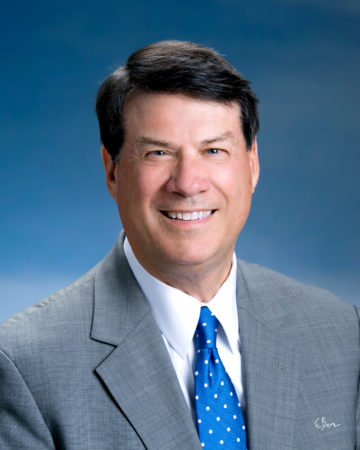Sandy Springs’ mayor and fire chief will speak at a firehouse press conference March 2 to protest a bill that could kill local cities’ restrictions on wood-framed apartment buildings. State Sen. John Albers (R-Alpharetta), whose district includes northern Sandy Springs, will appear as well, organizers say.
The bill is turning into a battleground of construction material lobbies, as the timber industry reportedly had a big influence on its filing, and the press conference is organized by the National Ready Mixed Concrete Association.
A Sandy Springs building code change passed in 2016 requires apartment buildings over three stories tall or over 100,000 square feet in size to be constructed with steel and masonry rather than wood framing. Dunwoody already had a similar code in place.
Both codes would be killed by House Bill 876, which says that “no county or municipality shall prohibit the use of wood as a construction material so long as such use conforms to all applicable state minimum standard codes and the Georgia State Fire Code.”
As the Johnson Ferry Road firehouse setting suggests, Mayor Rusty Paul and Fire Chief Keith Sanders will focus on fire safety arguments for the wood-frame restrictions at the press conference. An announcement press release calls HB 876 an “unconstitutional bill” that “makes towns and cities throughout [Georgia] less safe” from the “nationwide scourge of wooden apartment fires.”
However, Sandy Springs cited several additional reasons besides fire safety for the code change at the time of its passage, including reducing apartment development by making it more expensive and an aesthetic argument that steel-and-masonry buildings look better and last longer. In a Feb. 19 post to the Sandy Springs Zoning Coalition Facebook group urging resistance to the bill, Paul made no explicit fire safety arguments, instead warning the law would allow “cheap apartments” and prevent “higher quality construction.”
Dunwoody City Councilmember Terry Nall said fire safety was a motivation for his city’s version of the restriction.
“In Dunwoody, we choose life safety first and do not put a price on people’s lives,” Nall said. “In Dunwoody, we desire a higher standard of life safety and quality for our community. Local control is a basic tenet of Dunwoody being the government that is closest to its citizens.”
The bill’s lead sponsor, state Rep. John Corbett (R-Lake Park), says the bill does not make buildings less safe, as they still must meet state fire codes. The motive was rural economic development, he previously said, describing wood as a safe and affordable building material.
“There are 97 sawmills in Georgia [and] most, if not all, are in rural Georgia,” Corbett said. “Atlanta is an important downstream market for our timber farmers.”
He also suggested that Sandy Springs’ code is a case of “government put[ting] its thumb on the scales” of the free market.
Timber and housing development industry representatives strongly opposed the Sandy Springs code at the time of its passage. Paul is himself a state legislature lobbyist whose clients include construction contractors, but as an industry they do not appear to be happy with the Sandy Springs code.
The National Ready Mixed Concrete Association has a Georgia chapter that is based in Sandy Springs. The press conference is described in a press release as staged by its “Build with Strength” coalition that also includes “fire service professionals, engineers, architects and industry experts.” The coalition operates a Twitter account, @BuildStrength, that touts the benefits of concrete construction and tweets news about wood-frame apartment fires.
Several months after the 2016 passage of the Sandy Springs code, Build with Strength commissioned a poll of 400 Georgia residents that found strong positive response when asked about the code’s provisions and its use of “enhanced quality materials.”
Also scheduled to speak at the press conference is Steve Skalko, a Macon-based building code consultant.
–Dyana Bagby contributed
Update: This story has been updated with information about Sen. John Albers’ attendance and to clarify that Paul’s lobbying work includes construction contractors, not housing developers directly.


